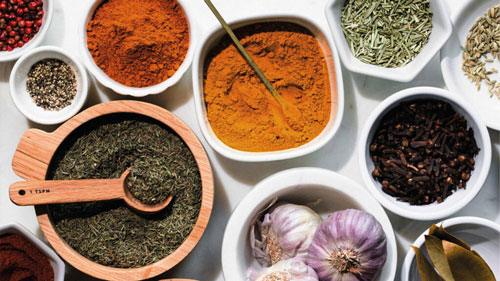HIGH blood pressure, or hypertension, increases the risk of heart disease and stroke, both of which are leading causes of deathTrusted Source in the United States.
Nutrition advice on how to lower blood pressure often includes using herbs and spices rather than salt to flavor meals. However, experts know little about the health benefits of herbs and spices.
A recent randomized controlled trial suggests that a diet rich in herbs and spices may reduce blood pressure in people at risk of cardiovascular disease.
According to the Centers for Disease Control and Prevention (CDC), nearly halfTrusted Source of adults in the U.S. have hypertension.
Untreated hypertension increasesTrusted Source the risk of cardiovascular disease, such as heart attack, stroke, heart failure, kidney disease, vision loss, and damage to blood vessels.
Dietary guidance on reducing blood pressure includes reducing salt intake. The Dietary Guidelines for Americans recommend using herbs and spices instead of salt to flavor food.
Experts know less about the health effects of herbs and spices than they do about those of salt. However, some studies have shown that herbs and spices can reduce lipemiaTrusted Source — the excess of lipids in the blood — hyperglycemiaTrusted Source, and oxidative stress.
To dig a little deeper, researchers at Pennsylvania State University recently conducted a randomized controlled trial investigating the effect of longer-term consumption of herbs and spices on risk factors for cardiovascular disease.
They found that a higher level of herbs and spices in food reduced 24-hour blood pressure readings. The findings appear in the American Journal of Clinical NutritionTrusted Source.
Prof. Penny Kris-Etherton, one of the lead authors of the study, told Medical News Today, “Indeed, the blood pressure-lowering effects of herbs and spices in an average Western diet were surprising to me.”
“We [already know] about the effects of many lifestyle factors, especially dietary factors, that can increase blood pressure — such as sodium, alcohol, and caffeine — and others that can decrease blood pressure.










